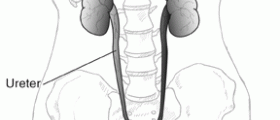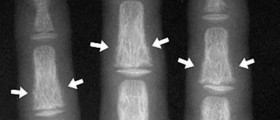
End stage renal disease or ERSD is the condition in which the kidneys fail to function. The patient with end stage renal disease requires dialysis or kidney transplant to survive. End stage renal disease is permanent and irreversible. The leading cause of this condition is diabetes or hypertension. However, end stage renal disease can be also due to congenital conditions, side effects of certain medications and injury to the kidneys.End Stage Renal Disease and Chronic Kidney Disease
Chronic kidney disease (CKD) is the condition featured by progressive loss of kidney function. The kidneys of a person with this disease are damaged but may still perform its function. However, chronic kidney disease in its final stage results in kidney failure or end stage renal disease. When this occurs, the person requires dialysis or a kidney transplant to live.
Risk Factors for End Stage Renal Disease
End stage renal disease can affect any person. However, some people are more susceptible to ESRD. This includes individuals with chronic kidney disease, although many people with CKD are not aware of their condition as this disease is initially asymptomatic. Injury or trauma to the kidneys and major blood loss are other risk factors for end stage renal disease.
Prevention of End Stage Renal Disease
In order to prevent end stage renal disease it is important to prevent chronic kidney disease. Also, since diabetes and high blood pressure are the two major causes of chronic kidney disease, they should be kept under control.
Healthy habits are equally important for normal functioning of the kidneys. You should have regular physical exams, particularly frequent check-ups of blood pressure and blood sugar. Eat diet low in fat and salt and exercise regularly. Avoid smoking and drink alcohol moderately. Finally, always take medications exactly as ordered by your doctor and inform your doctor before you start any new medicine or supplement.Diagnosis of End Stage Renal Disease
Often, people are not aware of their kidney problem until the problem becomes severe. This is because symptoms of kidney disease are not present in the early stages. Therefore, to check how well the kidneys are working it is important to get several simple medical tests done. This includes blood pressure check-up, urine test and blood test for eGFR.Treatment for End Stage Renal Disease
Dialysis and a kidney transplant are the only treatment options for end stage renal disease. These treatments replace the job of the kidneys which is to filter the blood from toxins and extra fluids. Also, the patient must make dietary changes and eat kidney friendly diet. Treatment for ESRD also aims to prevent complications of the disease such as anemia, cardiovascular problems and bone disease.

















Your thoughts on this
Loading...